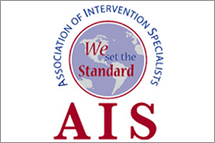
Have you ever wondered if you are blowing things out of proportion? When someone is exposed to the destructive and bizarre behaviors of an alcoholic/addict, they tend to be unable to identify or make an accurate assessment of the alcoholic/addict’s mental, emotional, spiritual, or physical state which are direct results of the user’s alcohol or drug use. When we are unable to admit what is actually happening, we begin to take responsibility ourselves, or pass the responsibility of the user’s behavior in directions that are easier and less painful to us. When this is done, we are enabling the alcoholic/addict. Enabling only reinforces the alcoholic/addict’s behavior. Ask yourself if you have ever found yourself making these statements:
“Maybe it is me that is making them drink or use.”
“Maybe I’m just reading into things too deeply.”
“Oh, it’s not as bad as I make it out to be.”
“They are under a lot of stress. I would probably do the same thing!”
If you have found yourself or others making these or similar claims when dealing with an alcoholic/addict and their abuse, take this assessment to determine if your loved one has a problem and possibly needs an intervention:
- Does your loved one look forward to drinking or getting high at the end of the day? Or, do they drink or use during the day just to cope or get by?
- Does your loved one brag about their high tolerance to drinking or using drugs, and seem to be proud of this ability?
- Has your loved one ever told you that they are not addicted, that they can control the usage themselves, but you believe that their behavior and actions would say otherwise?
- Does it seem to be difficult for your loved one to enjoy himself in social situations unless he is under the influence of alcohol or drugs?
- Does your loved one use alcohol or drugs to help them sleep?
- Does your loved one fail to keep promises about his ability to control his alcohol or drug use?
- Has your loved one ever missed work because of drinking, using, or hangovers?
- Does your loved one ever display low self-esteem if not intoxicated?
- Does your loved one display signs of paranoia or become overly worried about minor issues?
- Does your loved one seem to be tired much of the time?
- Has your loved one ever expressed to you that they use alcohol or drugs to make them “feel better”?
- Have your ever found yourself defending, making excuses for, or agreeing to the reasons for which they drink or use?
- Does your loved one ever say, “I’m sorry. It will never happen again.” Yet the behavior continues?
- Does your intuition tell you that the information the alcoholic/addict is telling you is wrong or untruthful?
And finally, this question stands alone:

If you answered “YES” to three or more of the above questions, it is time to take the next step toward helping your loved one. There is hope and there are ways to get around these typical excuses and explanations.
The first step is to MAKE THAT CALL! 972-333-6997





